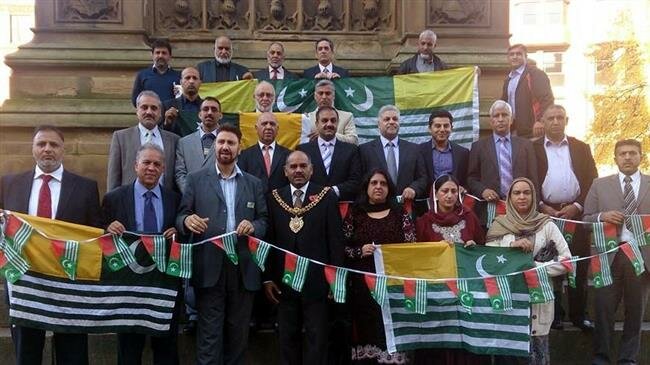India’s revocation of Kashmir’s special status has attracted widespread international concern. Fears are centred on greater repression in Kashmir following the revocation of Article 370, which guaranteed the disputed region’s “special status” in India.
There are also fears of a further deterioration of India-Pakistan ties as India-controlled Kashmir is a disputed territory claimed by Pakistan.
Whilst officially Britain’s Foreign and Commonwealth Office (FCO) has merely expressed “concern” over the Indian government’s decision to revoke Article 370, unofficially Britain is far more heavily involved in Kashmir’s affairs.
There is a substantial Kashmiri population in Britain, believed to number one million. By some estimates up to 70 percent of British Pakistanis are from Azad Kashmir, the Pakistani-controlled part of the region.
Britain is also home to a substantial Indian population of 1.4 million people. Many British Indians are intensely involved in politics back home, helping to fundraise for Indian political parties, consult on campaigns and even generate grassroots mobilisation.
In addition, British-Indians consistently lobby on Anglo-Indian issues, particularly on trade and foreign affairs.
British Indians tend to have right-wing political instincts. Many support the ruling Hindu nationalist Bharatiya Janata Party (BJP), the driving force behind the revocation of Article 370.
Unlike British-Pakistanis, British-Indians tend to adopt right-wing positions at home. A study by the University of Bristol shows that 40 percent of British-Indians voted for Brexit.
The presence of so many politically active Pakistani and Indian origin people in the UK means that the Kashmir issue has an important British dimension.
The Observer reported on August 11 that there are fears Kashmir tensions could “spill over” to Britain’s Pakistani and Indian communities.
The “spill over” has already occurred inside the House of Commons. Last week eight Muslim MPs from the opposition Labour party wrote to the Prime Minister Boris Johnson urging him to “condemn” India’s revocation of Article 370.
This move was countered by Conservative party MP Robert Blackman who wrote back to the PM accusing the Labour party of departing from Britain’s “long-held position” of treating Kashmir as a “strictly bilateral issue”.
A long-time supporter of Indian Prime Minister Narendra Modi and the BJP, Blackman described the Indian government’s decision to revoke Article 370 as “excellent”.
Thus, both in terms of inter-community relations and at a parliamentary level, Britain interferes in Kashmir, and by extension in India’s and Pakistan’s internal affairs.
Source: Press TV
By Rupert Cansell



























